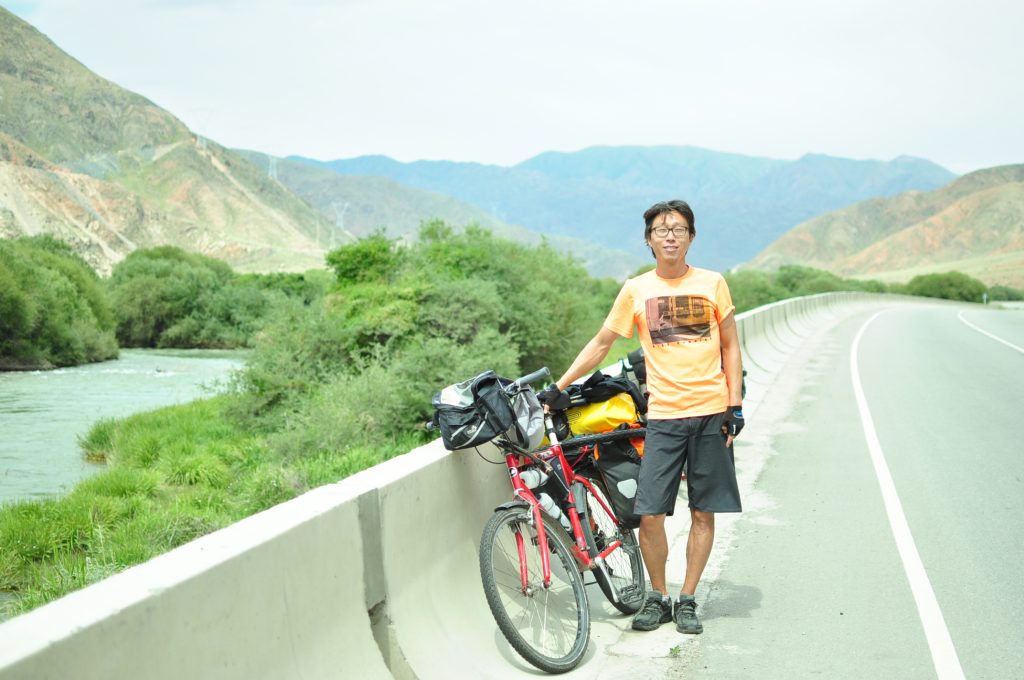
In the year 2016, Korean architect Nam Dongho decided to go on an adventure. He had worked in Amsterdam, Netherlands, for a while and was now stuck in an unfulfilling position in an architecture firm in Munich, Germany. Since a longer time, he dreamed of cycling to his home town Deagu in South Korea. He quit his job and started a breathtaking four-month journey to South Korea from May 1st to September 5, 2016.
The distance from Munich to Deagu led about 15.000 km through the countries: Germany, Austria, Croatia, Slovenia, Bosnia and Herzegovina, Serbia, Bulgaria, Turkey, Georgia, Azerbaijan, Kazakhstan, Uzbekistan, Kyrgyzstan, China and finally South Korea. Dongho cycled terrific 5.000 km, each day around 60 to 100 km. The other two third of the route he traveled by train, bus and ship.
The four-month trip was definitely slowing down Dongho’s travel to his final destination, his parent’s home. But does the individual traveler see himself as a Slow Traveler?
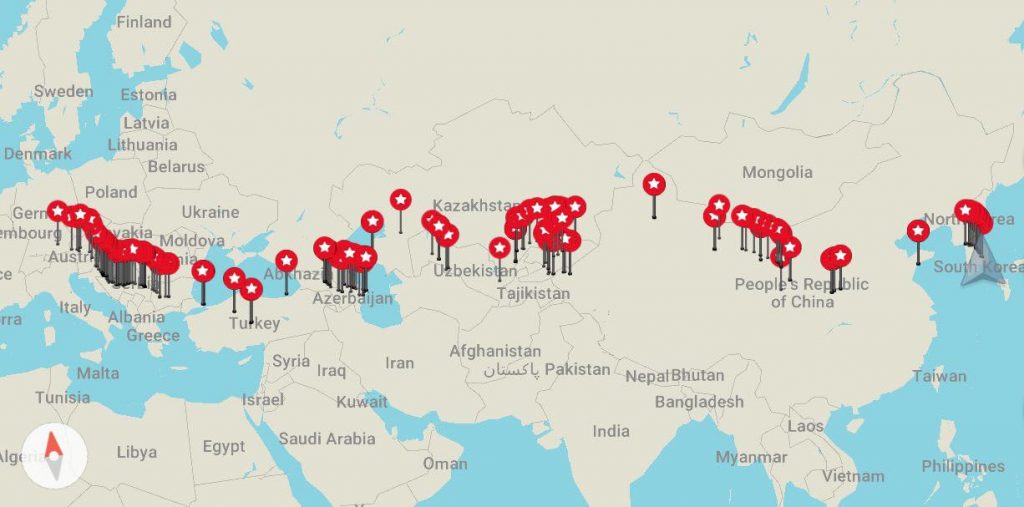
What is the story behind your journey? What led to the decision to do it?
I think there are always many reasons. First, I was inspired by one of my German friends who decided to cycle from Germany to China. Second, that year I got the German permanent residence. Normally the right for Non-Europeans to stay in Germany is bound to their job. If they lose their job, they need to go home. That meant that I was more flexible in Germany and in my decision making. Third, I was sick of my job. I was working for a small architecture company in Munich. The job bored me and my two bosses were very stressed all the time. I needed to stop working there. Since I got the German permanent residence, I didn’t need to find a new job in a hurry.
But the biggest reason for the trip was the fourth: I was a bit lost in life. I was suffering. The pain was too big to handle. I was probably the most committed person when I was studying at the university. I loved the subject – architecture is really interesting to study. Then I realized that in reality at work it’s totally different from what you imagined. I guess, I was searching for something. I don’t know what it exactly was and I don’t know it today.
I needed time for myself and time to think about my life. Maybe, I wanted to find an answer for the meaning of life. Or maybe, I just wanted to escape from the miserable reality. I don’t know which reasons were stronger than others, but all these reasons together led to my decision.
Why did you decide to travel alone?
I guess not many people are willing to do this kind of trip. I even never thought about if I could find someone who would come along. Also, I wanted to have freedom for myself.
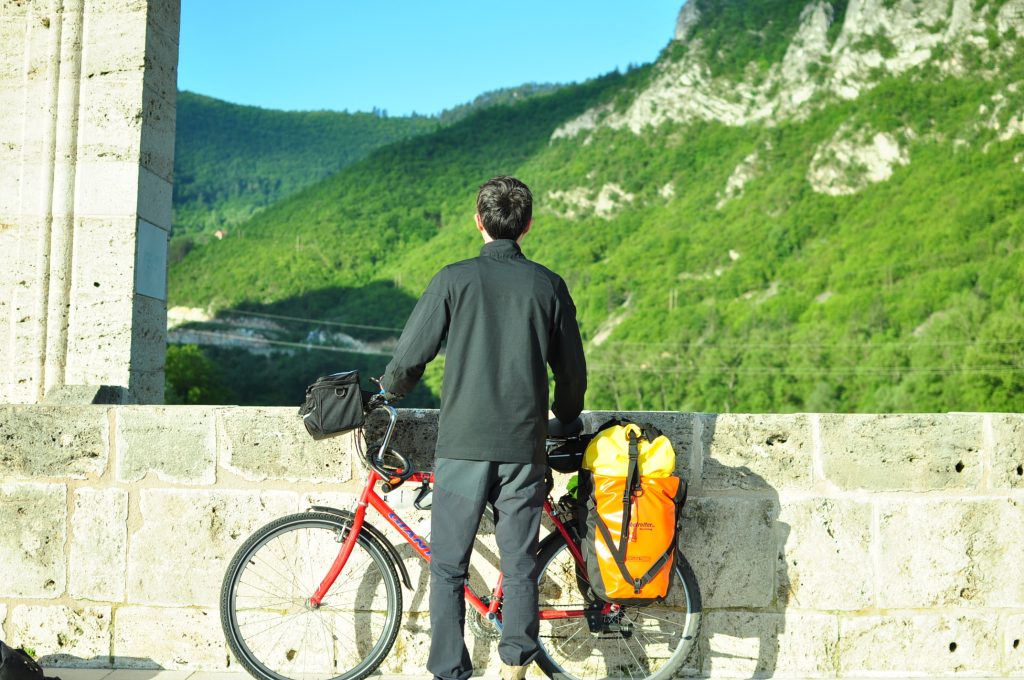
What did you plan ahead of the trip?
I only planned the big picture. Where I was going to go. Everything else, like accommodations, country information or cultural customs, I didn’t plan at all. The only thing I planned was to visit my friend in Bosnia.
When I cycled in the country side, I usually didn’t need any accommodation – I could just sleep in my tent. If I passed a city, I got a room because it is very hard to find spots in cities to put up a tent. If I needed to book a hotel or hostel, I did that one or two days ahead. I also couch-surfed in some places. The requests for that had to be send a bit earlier, like one or two weeks ahead. Couchsurfing was a good way to meet local people and learn about their city and culture.
In preparation for the bike riding I cycled a lot. When I was in Munich, the route from my apartment to work was 15 km. Every day I cycled to work and back, each day 30 km. I think that was quite enough as training for the bike trip.
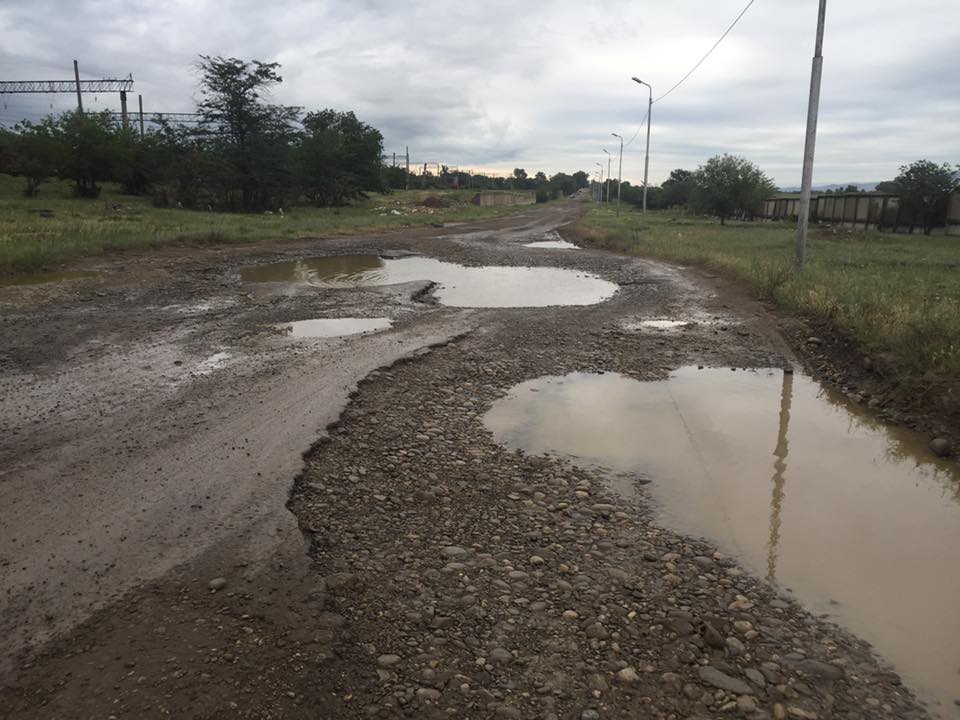
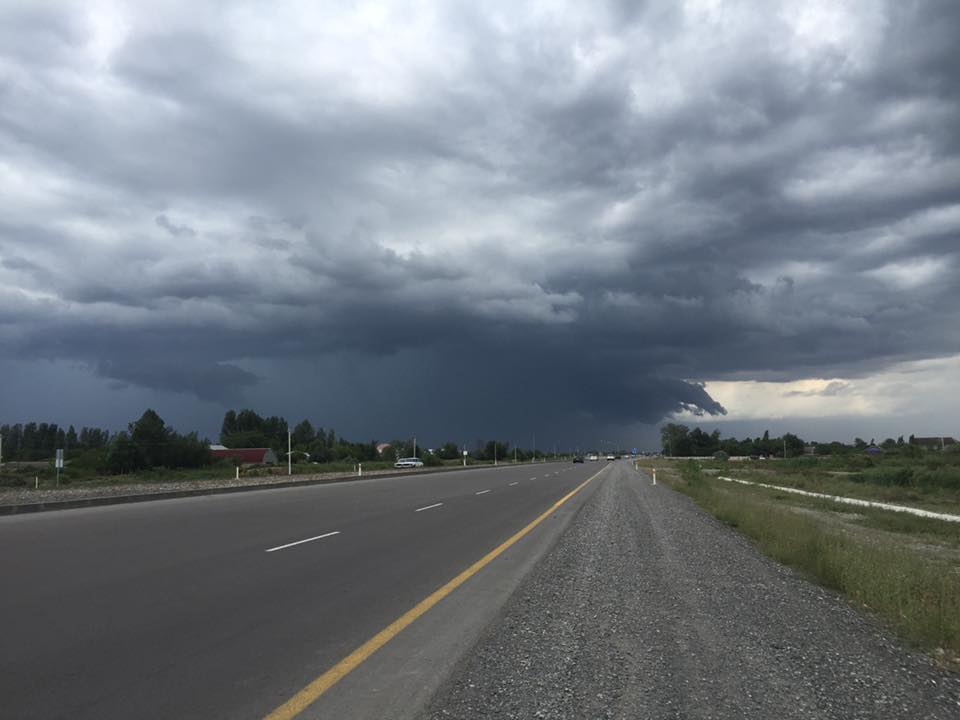
How did you experience the nature along the trip?
When you are always outside, you are definitely connected with nature. I even never checked the weather forecast. You can simply see the up-coming weather with your own eyes or you can just sense it. You are basically becoming one with nature. Your rhythm is the same as nature’s rhythm. I was cycling mostly in Summer, so the day time was quite long. From 4 a.m. it became already quite bright. Then I would open my eyes, fold my tent and start cycling. I could stop whenever I wanted to enjoy the beautiful scenery, but except for these short breaks I kept on cycling. If I think about it, I was most of the time in nature. In the evening I would find a camping spot and when it got dark, I went to bed.
But being in nature was not always pleasant. My travel was definitely affected by all kinds of weather. When I started on May 1st, I thought the temperature of May wouldn’t be cold. Far wrong! I tried to pass the Austrian Alps, but when I reached a pass there were large snow piles and too much snow. That night I camped there, which was too cold. In the end, I didn’t manage to go over the Alps there due to the snow.
I also witnessed remarkable changes in the landscape during my travel. When I was in Azerbaijan, I crossed the country twice, because I was waiting for an Uzbekistan Visa in Baku. It took quite some time and I didn’t want to stay in a city for long. So, I got back by bus and took a different way to come back to Baku. Initially, I took a way in the south, where the land was very dry and deserted. The second time, I took the northern way, where the green of the landscape truly surprised me.
Later, I experienced the opposite weather than in the Austrian Alps. Due to the incredible hot weather, I had to stay in Tashkent, Uzbekistan for a couple of days. I had never experienced that kind of heat in my life. If I remember it correctly, it was almost 50 degree.
The most amazing nature experience I had in Kyrgyzstan. After the dry country side of Uzbekistan the nature there was incredibly beautiful. Kyrgyzstan is located at the end of the Himalaya region and very mountainous. I cycled up to the 3.500 mountain pass. During this ascent I experienced very warm weather at the bottom to snow at the top of the mountain.
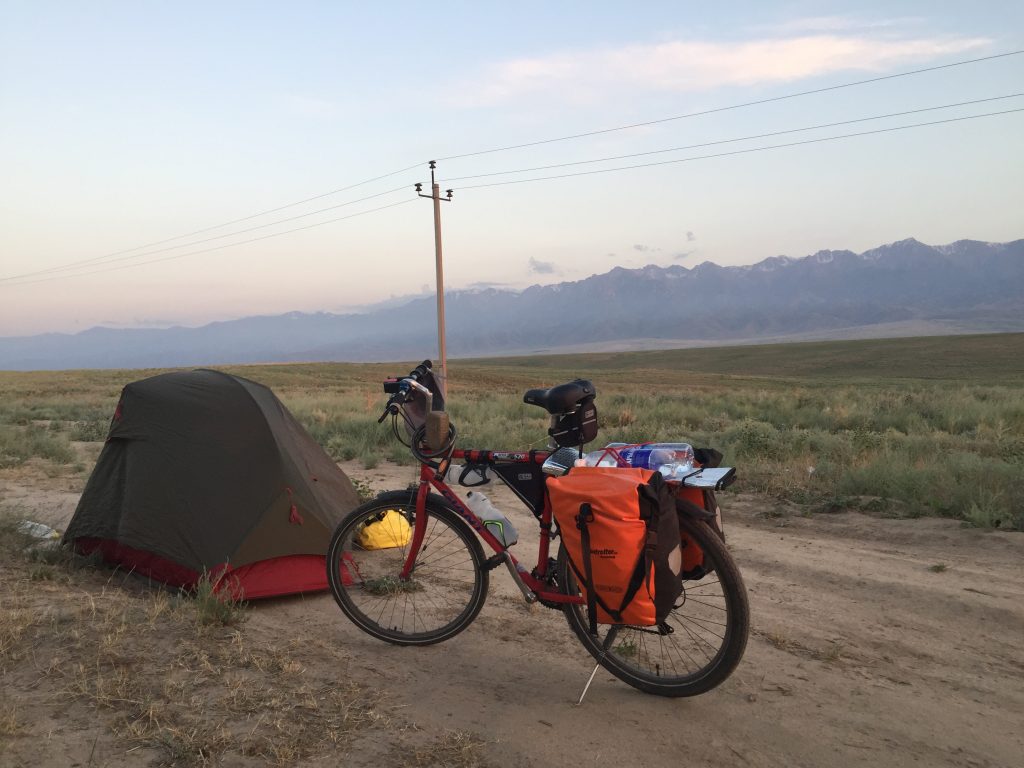
Did you do longer breaks along the way?
Yes, I did some breaks along my route, but mostly because of organizational or health reasons. I stayed five days in Tbilisi, Georgia, because I had a food poisoning. In Baku, Azerbaijan I stayed another four or five days, because I waited for the Uzbekistan Visa. There I stayed, as mentioned earlier, because it was simply too hot to ride bike. I needed a break for four or five days. In the hostel I met a German couple. Later, in Bishkek, Kyrgyzstan I paused another time. The next part of the route would be very mountainous, so I wanted to have a break before the hard route. For one week, I stayed in a place, which is very famous for cyclists and I met many other long-distance bike travelers. The German couple I met in Tashkent sent me a message that they were in Osh, Kyrgyzstan. Since Osh was a city along my route, I met up with them and got to know another German traveler. We stayed there about five days.
Another very interesting place, where I stayed longer was Kashgar in China. The city is located at the western end of China. People here don’t really identify themselves as Chinese and they want to be independent. But for China Kashgar is geographically very important. This is why the Chinese government is putting up a strong force to control people there. The people who live in the region are called Uyghurs. Originally from Turkey, they are a Muslim culture. The cities history and culture were very interesting. The other benefit was that I met many interesting cyclists there: one Swiss, two Dutchmen and one German, whom I already met in Osh.
Did you make friends along the way?
When I think about it, I never really actively tried to connect with locals during my trip. However, on the way there were always some local people who invited me for tea. Except for that I kept on cycling. The friends I made along the trip were all other cyclists. I liked all of them. Additionally, we all met in very special circumstances, all on our long bike trips to reach our destinations. Meeting people in a place where there is nothing around is very interesting. With some people I stayed in contact, but we lost touch after some years. However, I think it’s okay. We are all in each other’s memory, I guess.
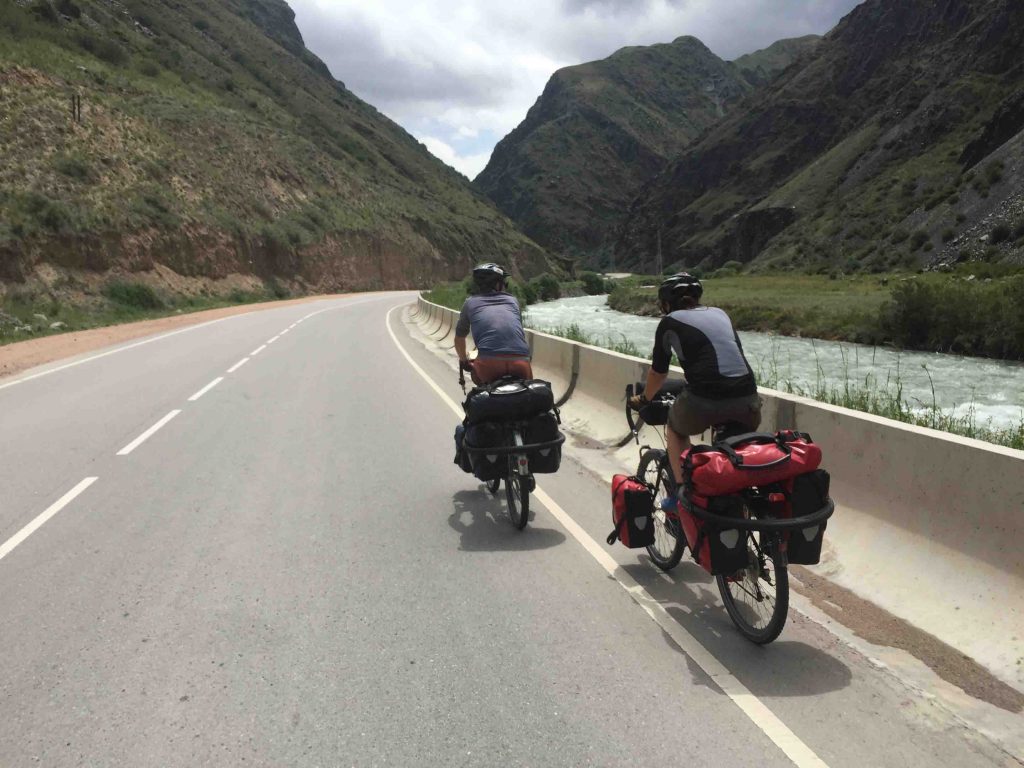
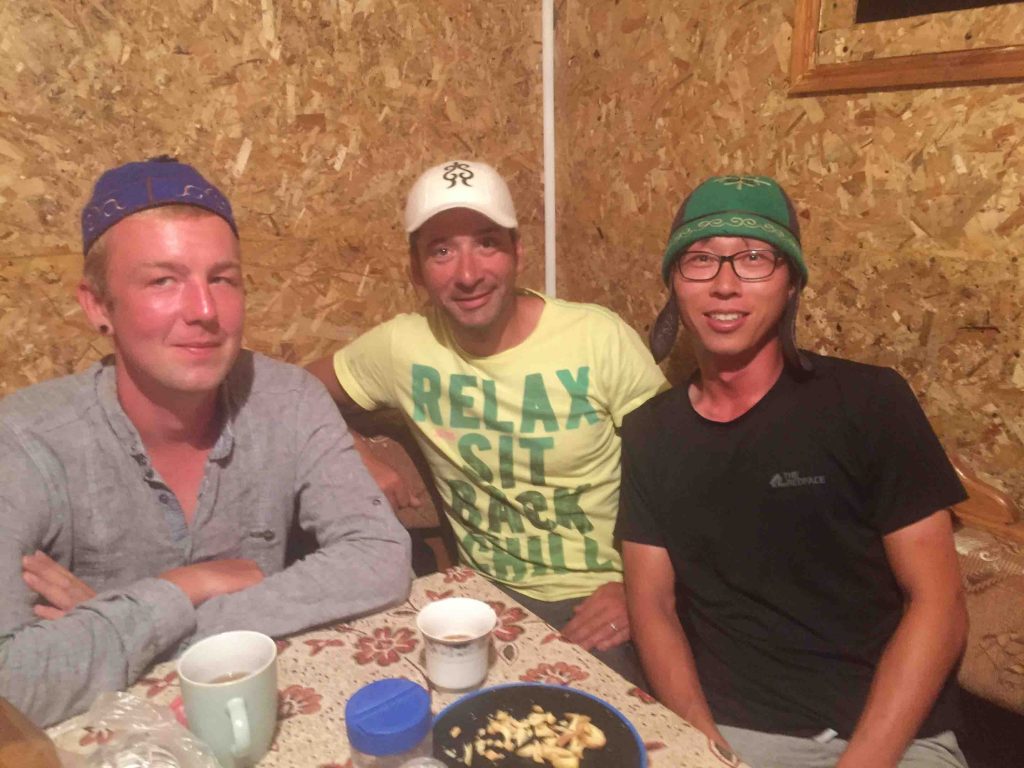
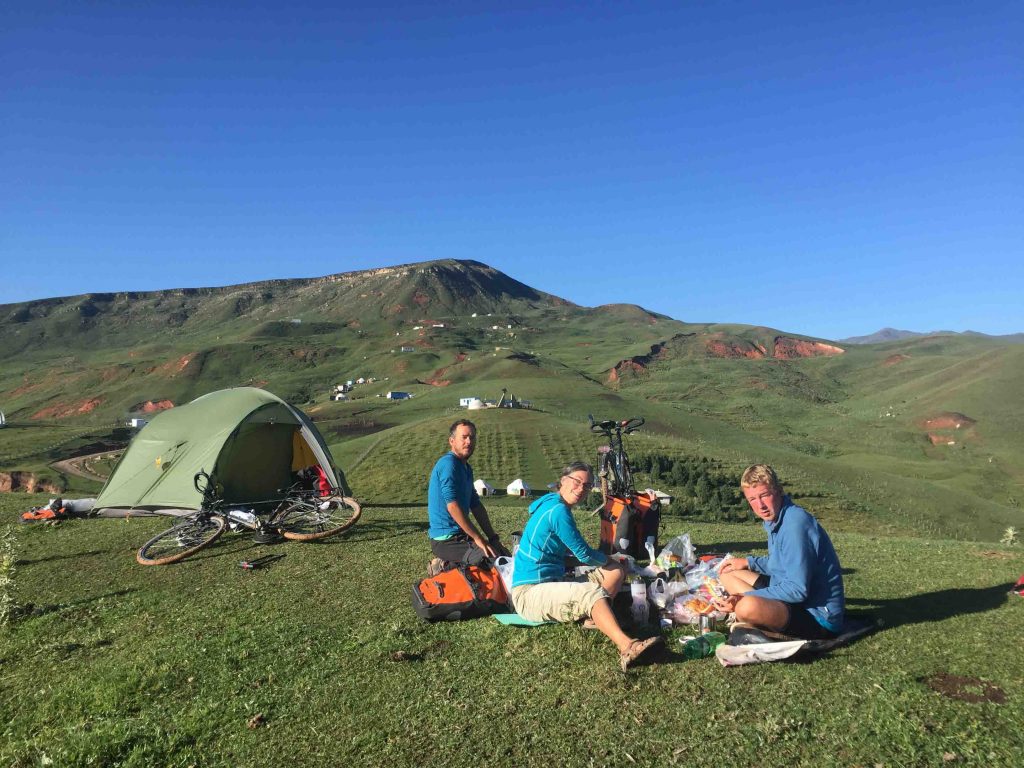
Did you have unexpected events or even catastrophes during your trip?
I didn’t really have serious problems, but I had a couple of troubles. One of the most interesting stories happened on June 10, when I was arrested by the Azerbaijan police. It was Day 40 of my trip and I had just passed the Azerbaijan border. It rained a bit, but it wasn’t too much so I continued. As I always did, I took some pictures along the way. Suddenly, 15 km into the country I was stopped by five soldiers. Luckily one of them spoke English. He asked me to show them the photos that I took. They checked them and it seemed all fine. The English-speaking soldier told me it was not a big deal. However, they reported me to the police and soon some police officers came and asked me to get in their car. My bicycle barely fitted, but somehow, we managed to fit everything in the small police car. I hoped we would drive a bit further but the car drove all the way back that I already cycled. The police station was in a very small village, which wasn’t even on a map. Soon it rained very heavily, so I even felt pretty lucky to be arrested. The four or five policemen at the station were actually all very friendly and kind.
I was sitting there for around two hours and it seemed like we were waiting for something. Apparently, I didn’t know what’s going on. And at the station no one spoke English. Anyway, it was raining and I couldn’t go anywhere so I wasn’t bothered to ask anything. Finally, the head of the police station came with a translator. He started to interrogate me. If I break it down, the conversation went like this:
Police: “What are you doing here? Why did you take picture of this this and that?”
Me: “I am a tourist. I take photos of everything”
Police: “I don’t believe you. Why did you come to Azerbaijan? Are you a secret agent to spy around our town’s oil pipe construction?”
Me: “Sorry, I didn’t know about that. I don’t know anything about your town. I am a just tourist”
Police: “I don’t believe you. I don’t like your face. I know you are lying. What are you doing here?”
It went basically on like this for two hours. It drove me crazy. Later another guy – probably in an even higher position – came and again, had more or less the same questions. Finally, after four or five hours at the police station they let me go.
It was still raining, but I was very sick of being there so I just started to cycle in the rain. I had cycled for around one and a half hours in the rain and the rain became incredibly heavy. There was nothing around. Absolutely nothing. No house, no bus station, no tree, no roof. Only the road and the empty field. However, as always, I was a lucky person. I found a container box next to the road and saw someone in there. I rushed into the container box and it turned out that the guy was incredibly kind. He offered me many cups of hot tea and some food. I don’t know how I can really express this situation. It’s clear, he definitely saved me. He also let me sleep in the container box, which was his home for the night. I felt so lucky and thankful for the kindness of this stranger.
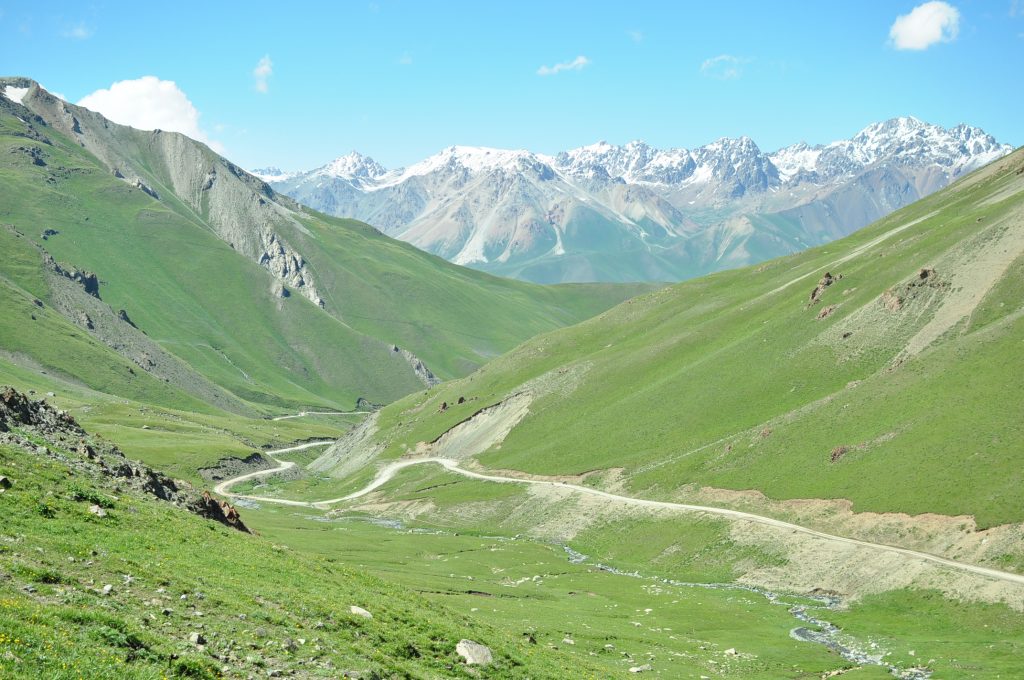
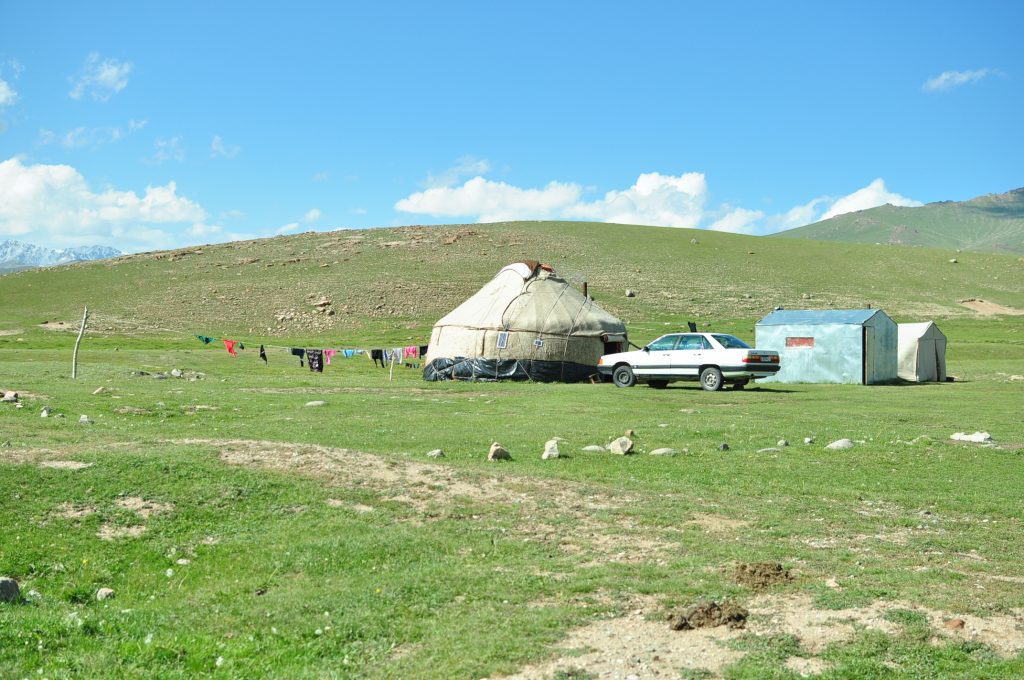
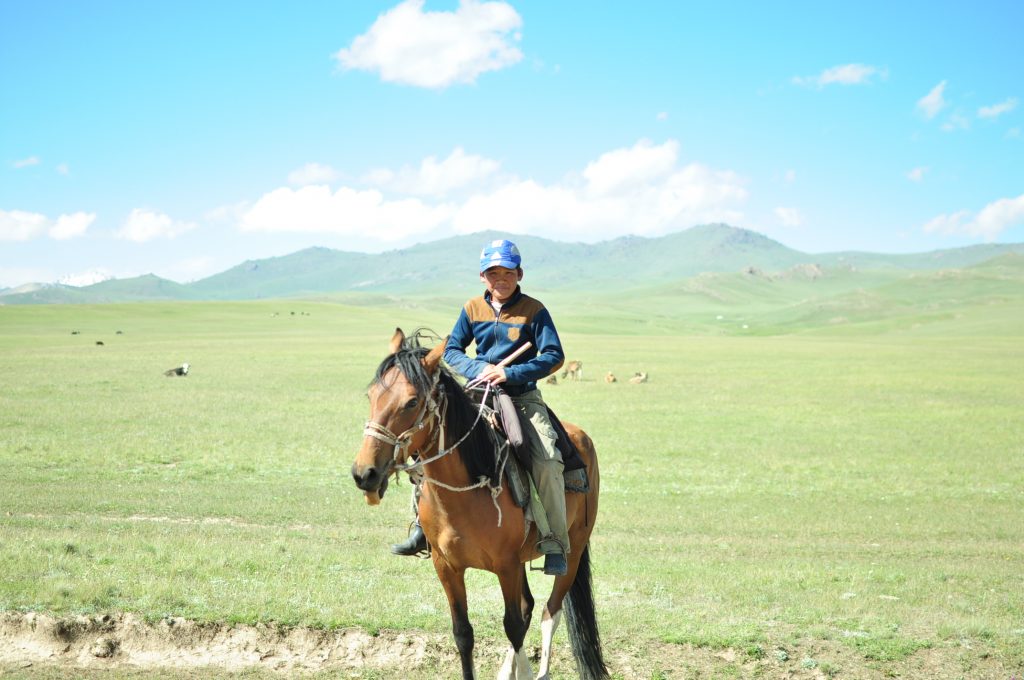
What was the best thing about your trip?
Every moment.
At the second look, it’s a hard question. Actually, I am still asking that myself, because I enjoyed every moment while I was cycling. I was totally happy every day. What I did was just cycling. Every day I had something to do. In this case, I had a destination. I saw many different cities, landscapes and sceneries. Sometimes I met other people and exchanged nice conversations and laughter. But I don’t know what exactly made me so happy. The probably best thing was that I had the freedom to choose the path by myself. I wasn’t depending on anybody. I was depending on my own will.
What did you learn about yourself on the trip? Did it change you somehow?
My honest answer is: I don’t know. I was suffering a lot before the trip. I don’t know if this was because my life in Germany was to lonesome, because I was totally unhappy with my job or because I couldn’t find a meaning or a purpose in life.
The trip had a huge impact on me. Every single moment, I was happy. It gave me hope that life could be better. I thought that I changed. Back in Germany I took a new job in architecture, but there I was miserable, too. Now, after leaving my job for another time, I am realizing that I still don’t know if I learned something along my trip.
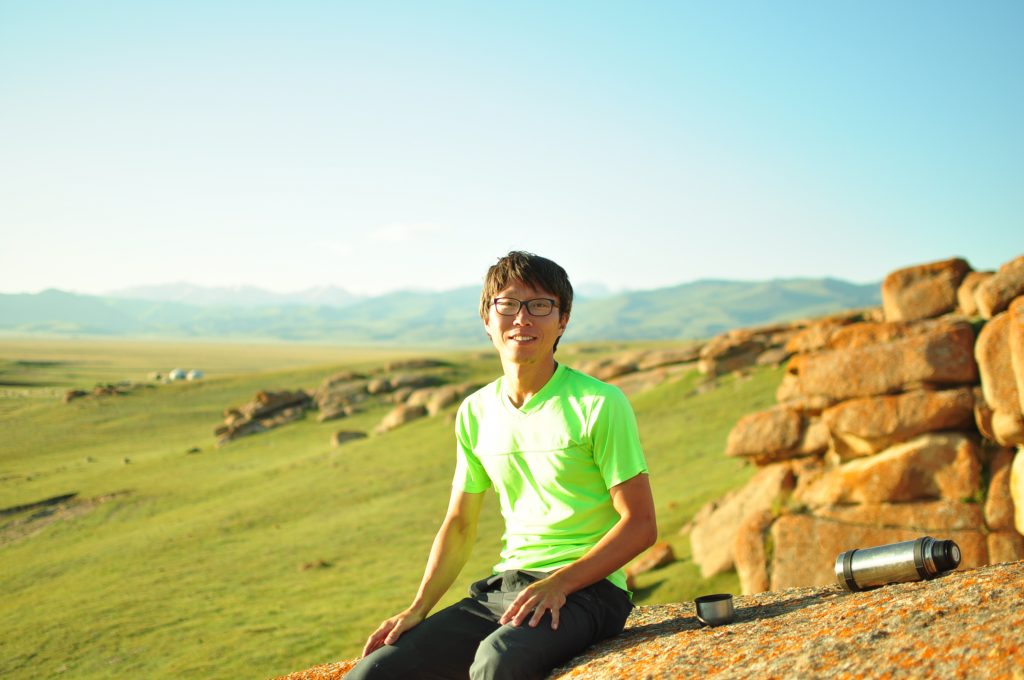
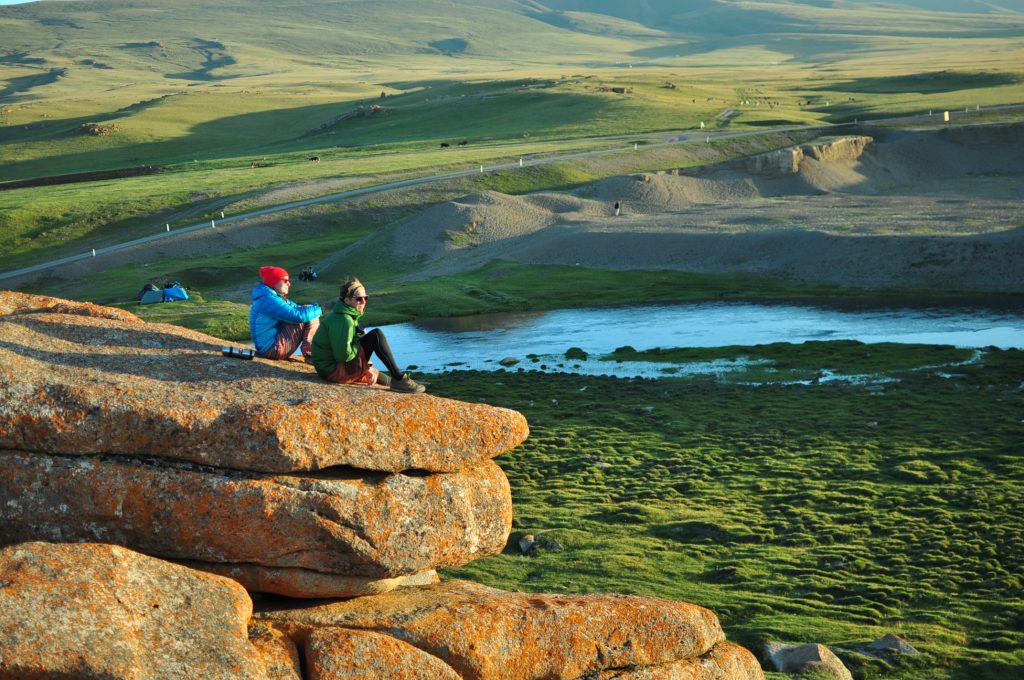
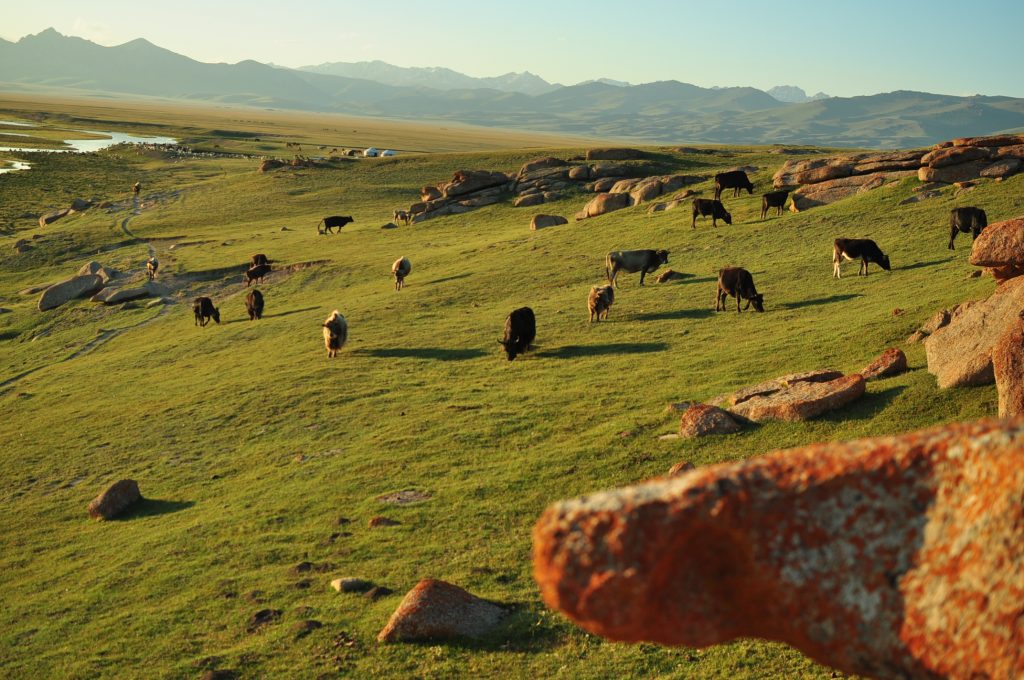
Do you see yourself as a Slow Traveler?
I noticed that an environment-friendly mindset and a sustainable life style is very important in Slow Travel, but I am not so conscious about that. On the other hand, I am also not a person who causes a lot of pollution. I did not really need to make conscious choices during my trip. The one thing that I did for the environment was that I didn’t take an airplane. But that was because it didn’t make sense to take an airplane during a bike trip. Of course, cycling was good for the environment, but that wasn’t the main reason why I chose this transportation type. Nevertheless, my travel method can definitely be categorized as Slow Travel.
However, the essential point was time. It was a totally minimal and humble trip, but time-wise it was definitely luxurious. I didn’t have any time pressure. I didn’t even mind that it was slow. Maybe the slowing down, the freedom I felt and the happiness I found within the small things could be summed up as Slow Travel?
What do you think about this new travel type: Slow Travel?
I think that time is the most essential point. If time is not available, it could be solved with a regional approach. If you go somewhere close you can still realize it as Slow Travel. However, these two travel types are not satisfying many people, I guess. We always want to go somewhere far and we always don’t have enough time.
Nam Dongho’s travel and architecture photography can be followed on Instagram: ndoftheworld
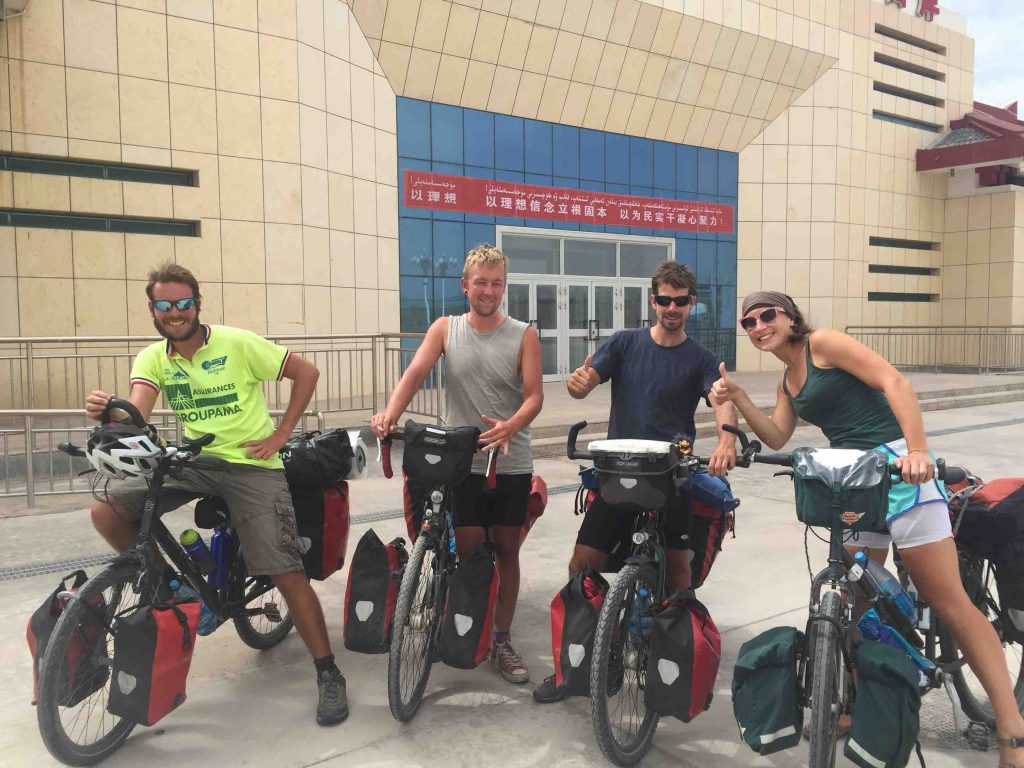
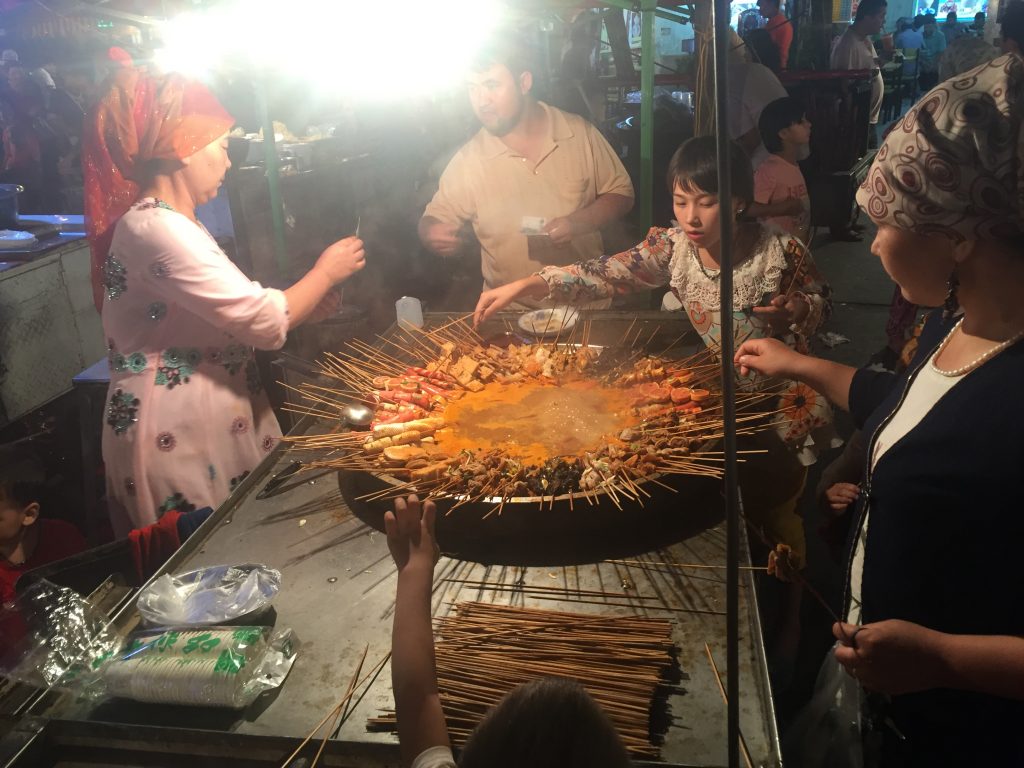
Interview by Anika Neugart.